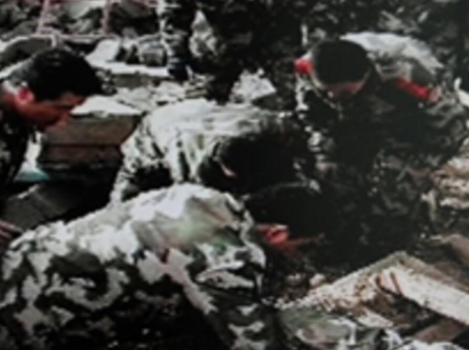
Controversy Erupts as Chinese Soldier Involved in Galwan Clash Becomes Olympic Torchbearer
India has joined the growing list of countries announcing a diplomatic boycott of the Beijing Winter Olympics, following China’s controversial decision to include a soldier involved in the 2020 Galwan Valley clash as a torchbearer.
The Indian Ministry of External Affairs condemned China’s actions, labelling it “regrettable” that the Olympics had been politicised. An Indian official confirmed that India’s envoy would not attend the opening or closing ceremonies of the Games in protest.
The choice of regimental commander Qi Fabao, who led Chinese forces during the 2020 skirmish with Indian troops in Galwan Valley, has sparked outrage in India. Qi, who was injured during the conflict, was hailed by state-run media in China as a “hero” following the deadly clash, which resulted in at least 20 Indian and four Chinese soldiers’ deaths. For nearly eight months, China did not publicly acknowledge the extent of its casualties.
Qi participated in the Olympic torch relay on February 2, carrying the flame from renowned short-track speed skating champion Wang Meng. Qi’s appearance in the Winter Olympics has been met with harsh criticism in India, where many see it as a provocative move by China. Some commentators have suggested that China is using Qi as a symbol of its nationalist agenda.
Manish Tewari, a senior Congress party leader, tweeted about the choice of Qi as torchbearer, calling it a clear message from China. Similarly, Aadil Brar, a journalist and columnist, expressed concern over the glorification of Qi as a national hero, stating that India should not have supported the Olympics under such circumstances. Retired army officer Gaurav Arya labelled the Olympic flame as the “flame of shame,” highlighting the fact that China initially downplayed its own casualties.
Journalist Abhishek Bhalla also criticised China’s decision, noting that the country’s information warfare strategy continued with the selection of Qi as torchbearer.
This controversy comes amidst rising tensions at the India-China border, where both nations have stationed tens of thousands of troops. The conflict in Galwan Valley, in which both countries suffered casualties, remains a source of diplomatic friction.
US Senator Jim Risch condemned China for its choice, linking the decision to the broader issues of human rights abuses, including the treatment of Uyghur Muslims in Xinjiang. Similarly, investigative reports have questioned the official casualty figures from China, suggesting that the true number of Chinese military losses during the Galwan clash may have been much higher than previously acknowledged.
As the Winter Olympics approach, the diplomatic boycott by India further isolates China, while the debate continues over the international implications of the Games and the choices made by the host nation.












